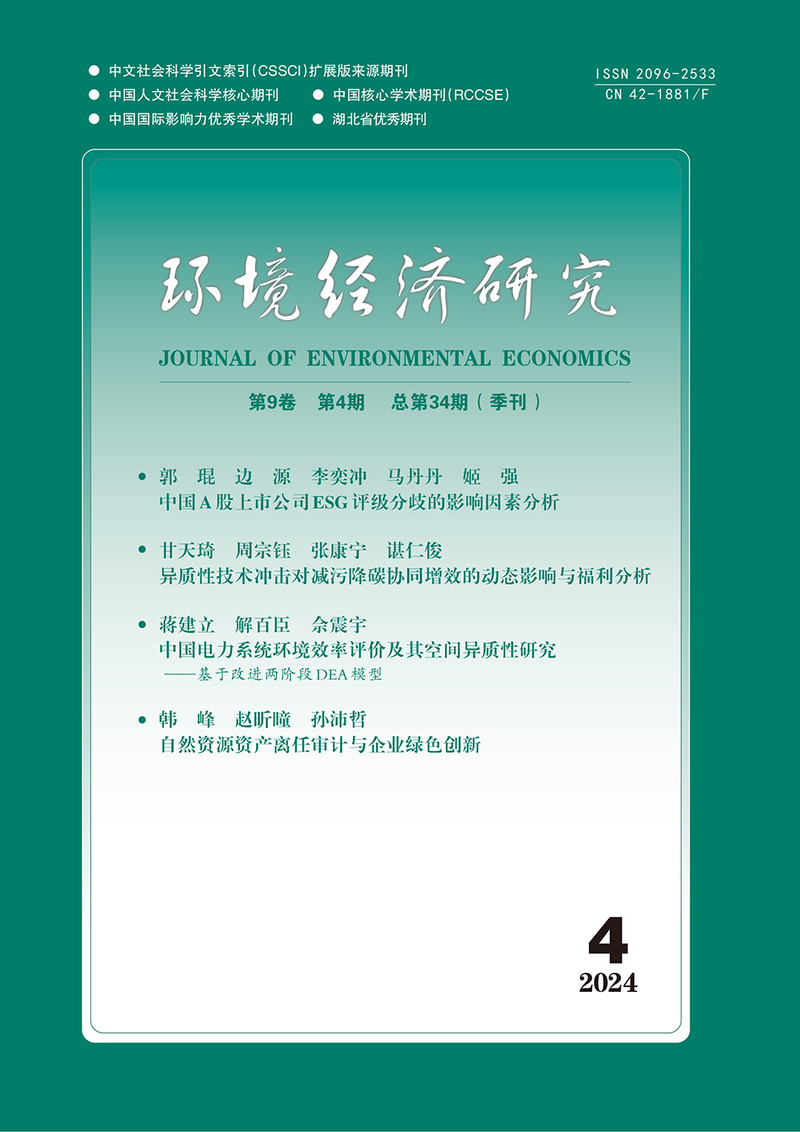摘要:“双碳”目标下的碳风险引发了各界的广泛关注,公司作为实现“双碳”目标的重要载体,碳风险对公司金融行为的影响已然成为学术界研究的重要议题。为揭示碳风险对公司金融行为及其绩效的具体影响效应和作用渠道,以及在碳风险约束情境下公司财务政策如何应对财务困境风险,本文基于经典的公司金融分析框架系统梳理了碳风险对公司投融资行为、资本成本、风险管理及公司绩效的影响。研究发现,碳风险对公司投融资行为及其绩效的影响存在波特假说与传统公司金融理论之间的悖论,即波特假说认为在组织合法性压力下高碳排公司通过提高碳风险意识和绿色低碳转型对公司投融资行为和公司绩效存在倒逼促进效应;而公司金融理论认为碳风险通过显著增加公司资本成本与财务困境风险进而对公司投融资行为和公司绩效存在抑制效应,因此公司应通过强化ESG理念和提高碳信息披露质量来降低公司资本成本与财务困境风险。在此基础上,本文从优化碳风险测度方法、优化理论模型和完善实证研究、加强碳风险与公司金融关系研究以及促进能源企业绿色低碳转型等方面提出了未来研究展望。
关键词:碳风险;公司金融行为;资本成本;财务困境风险;公司绩效
Research Progress on the Impact of Carbon Risk
on Corporate Finance
Li Jinglin,Feng Qiunan
(School of Accounting,Hubei University of Economics)
Abstract:The carbon risk under the dual carbon goal has attracted widespread attention from all walks of life. As an important carrier for achieving the dual carbon goal, the impact of carbon risk on corporate financial behavior has become an important topic of academic research. In order to reveal the specific effects and channels of carbon risk on corporate financial behavior and performance, as well as how corporate financial policies respond to financial distress risks in the context of carbon risk constraints, this paper systematically analyzes the impact of carbon risk on corporate investment and financing behavior, capital costs, risk management, and corporate performance based on a classic corporate financial analysis framework. The study found that there is a paradox between the Potter hypothesis and traditional corporate finance theories in the impact of carbon risk on corporate investment and financing behavior and performance. That is, the Porter hypothesis believes that under the pressure of organizational legitimacy, high carbon emission companies have backward forcing promotion effect on their investment and financing behavior and corporate performance through improving their carbon risk awareness and green and low-carbon transformation. Corporate finance theories believe that carbon risk can significantly increase the cost of capital and financial distress risk of companies, thereby inhibiting their investment and financing behavior and corporate performance. Therefore, companies should reduce their capital cost and financial distress risk by strengthening the ESG concept and improving the quality of carbon information disclosure. On this basis, this paper puts forward future research prospects from the aspects of optimizing the carbon risk measurement method, optimizing the theoretical model, improving the empirical research, strengthening the research on the relationship between carbon risk and corporate finance, and promoting the green low-carbon transformation of energy enterprises.
Keywords: Carbon Risk;Corporate Financial Behavior;Cost of Capital;Financial Distress Risk;Corporate Performance
